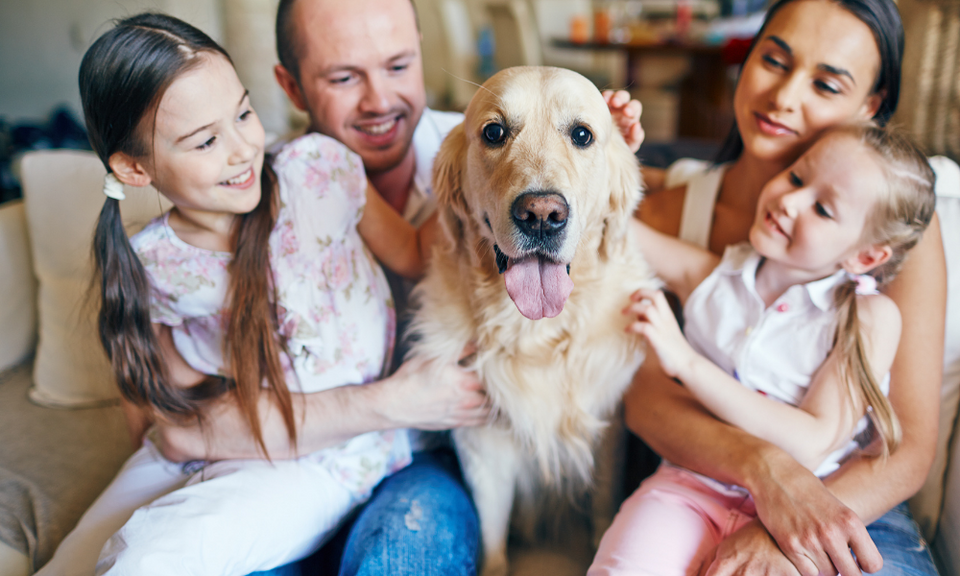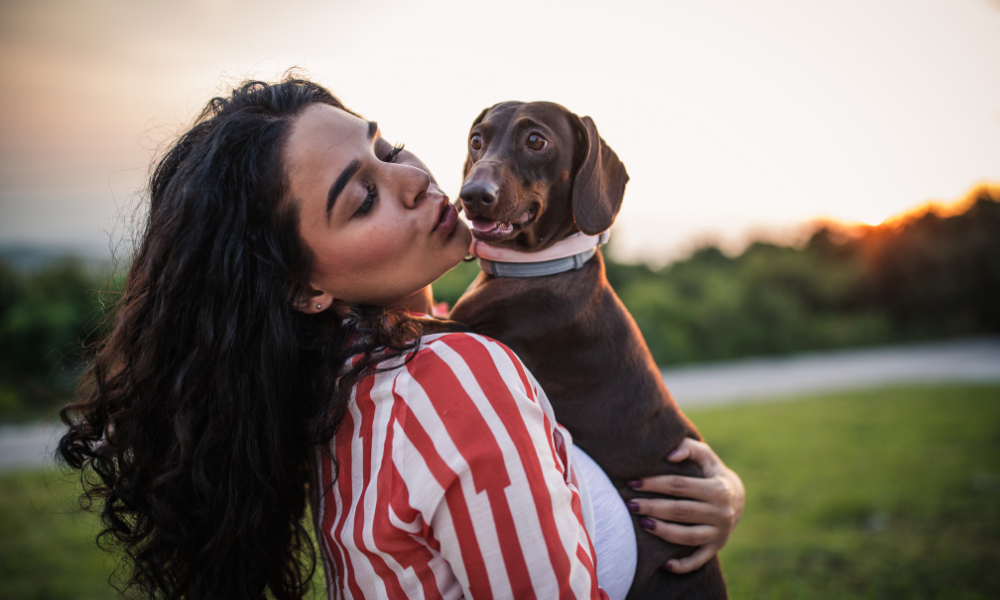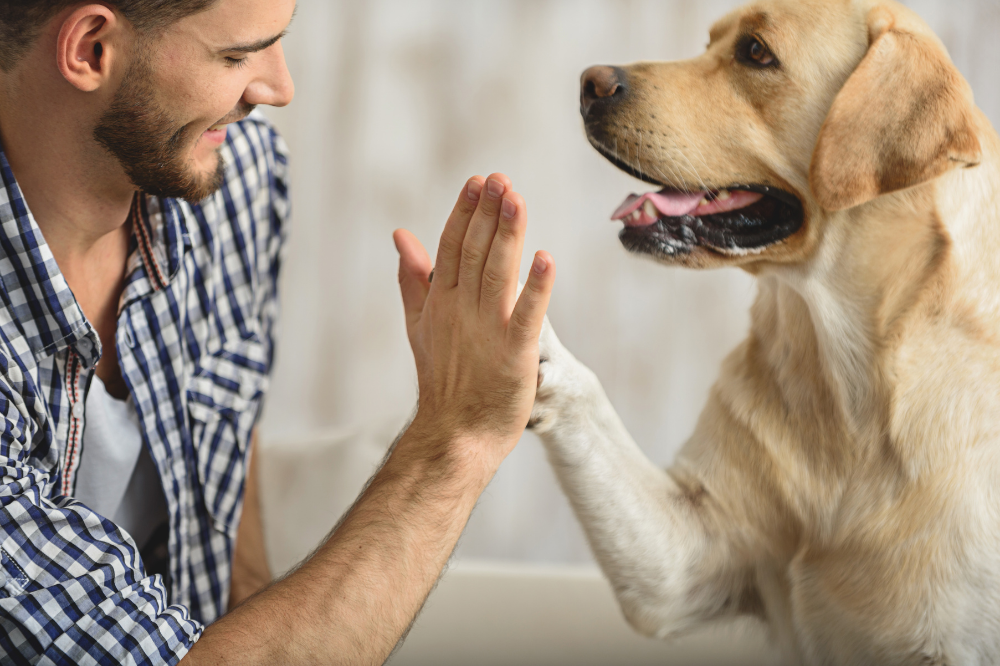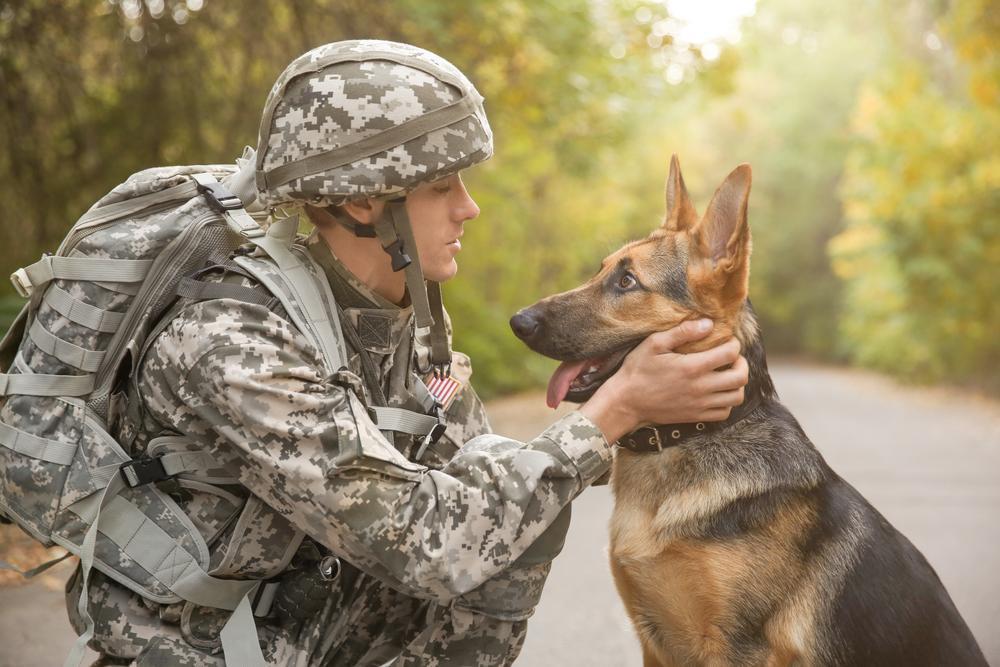
Reasons to Be Thankful for Our Pets

As Thanksgiving and the Holiday Season rolls around again, pet parents more than anyone else know what a blessing it is to have our precious fur babies in our lives, although we may not always stop to take the time to consider everything that they do for us.
One thing to keep in mind, though, is that our modern concept for pets as members of the family who live in the household is fairly recent. While humans have had pets, especially dogs and cats, for a long time, prior to the 19th century, they were pretty much working animals.
Working for their keep
The dogs would help with manual labor, herding animals, or hunting, while the cats would keep the house and barn free of vermin.
Of course, this didn’t quite apply to the leisure classes, who had both working dogs and beloved pets starting in medieval times. Toy breeds happened because they were bred to serve as lap dogs for medieval ladies and princesses.
Among the working and “peasant” classes, though, pets were, generally speaking, considered outside animals just like all of the livestock.
Taking a bite out of several problems
Of course, rabies was always a possible problem, and the first human and animal vaccines for that weren’t developed until 1885. But other things were also developing that changed the idea of pets as part of the family forever.
For one, the industrial revolution changed the working landscape forever. Now, machines could do the jobs of a lot of people or, rather, make it possible for fewer people to do a lot more work. This led to both migration into cities and entirely new jobs there.
After all, someone had to sell all the new goods being cranked out by factories. Dogs and cats came with us, and while cats continued their age-old careers as professional vermin assassins, dog didn’t exactly have anything to help plow or hunt down in the city.
What they did have was their bark, and so the dogs came inside, where their acute hearing and sense of smell could help them alert the family to danger. Was that a burglar? One deep, throaty bark could scare that problem away quickly.
Still, up through Victorian times, the belief was that pets were only for the “upper” classes. For the “lower” classes to own them was to encourage them to neglect their social duties. Whatever those were.
The 20th century and beyond
Once dogs and cats stopped being just burglar alarms and mousers, they fully moved into our families, and the results are already apparent in films from early in the last century — The Little Rascals wouldn’t be a complete gang without Petey the Dog, after all.
Nick and Nora had Asta, and each administration in the White House has always had a dog or dogs, from the time of Theodore Roosevelt to the present day, with only one exception.
Meanwhile, especially as Millennials moved out on their own, pets and the pet industry exploded, largely because a lot of people in this generation were getting married or starting families later, so their pets became their surrogate children.
In 2020, annual sales in the pet industry were more than US$100 billion for the first time ever, at least some of that being attributable to people staying home because of COVID.
Contrary to popular belief, there was not a boom in pet adoptions during the lockdowns. However, there were fewer people giving up their pets to shelters and fewer animals to be adopted, plus the process became a lot more complicated and took longer.
But at least it did give us a lot more time to spend with our beloved fur-babies.
What our pets do for us

While we definitely appreciate them for their companionship and devotion to us, there are a lot more things that our pets give to and do for us, each one a blessing to be thankful for. Here are the top five.
They keep us healthy
Pets are good for our health in so many ways. For one thing, just petting a dog (or cat) for fifteen minutes can lower blood pressure through the release of serotonin, oxytocin, and prolactin, which lowers stress and anxiety, and it can even lower blood levels of the stress hormone cortisol.
Dogs can also be good for our bodies because, unlike cats, they need to be walked several times every day. This activity can help keep our hearts healthy, and our bones and muscles strong.
Pets can also improve our immune systems both by reducing stress and, at least in the case of dogs, possibly preventing us from developing allergies in childhood and beyond.
Finally, dogs can be trained to sniff out diseases like cancer and malaria, and are even now being trained to detect the COVID-19 virus by smelling people’s breath, with trained dogs already having been deployed to check employees at Miami International Airport.
Dogs can also be trained to work with people subject to seizures although, contrary to popular belief, there are several kinds of seizure dogs that do different things. Some alert impending seizures, while others assist during and after a seizure.
Dogs can also be trained to alert people with diabetes that their blood sugar is dropping, in some cases even also bringing them glucose tablets or emergency phones as well, and they also sense the drop in blood sugar through their sense of smell.
They keep us from being lonely
One of the nicest parts about having pets is just having them there, and nothing can be more enjoyable then suddenly having your dog come over to rest their chin on your leg or put a paw on your arm, or your cat to jump on your lap or plant themselves on your laptop.
They clearly enjoy having us around, and not just as the one who knows how the can opener works, but they can do more than just be a living presence to keep us from being alone. They can actually keep us from feeling lonely.
They can also help us to make friends, and one recent survey showed that having pets was the third most common way people met other people in their neighborhoods, right behind just “being neighbors” and “using local streets and parks.”
People with pets were 60% more likely to get to know people in their neighborhoods than people without pets.
Naturally, dogs being more social animals than cats can lead to a broader territory for meeting people — walks, hiking trails, and dog parks are just a few places that come to mind. Training and obedience classes, agility competitions, and dog shows are a few more places where like-minded pet parents can meet.
And don’t forget that pets are natural ice-breakers. A stranger is much more likely to come over and compliment your cat or dog and start talking to them and then wind up talking to you. Pets have even led to many a marriage.
Finally, our pets can make us feel safe, whether it’s just a reassuring cuddle while we’re feeling anxious or nervous to being a living burglar alarm and protector, a well-known function of dogs.
However, there are some breeds of cat as well that can serve the same purpose, because these guard cats don’t like it when strangers enter their territory, and they’ll take action.
They’re good for our kids

As mentioned above, dogs can actually help prevent infants from developing allergies by training their immune systems early, and pets are great for teaching older kids responsibility, although this often involves starting with something other than a dog or cat.
There are also studies indicating that dogs and cats can help children with learning difficulties, too. Because pets have regular bathroom and feeding schedules, they can help children and adults with ADHD develop the skills necessary to anticipate and stick to schedules.
Studies have also shown benefits for children on the spectrum, although it’s very important to take all of your child’s specific needs into account and match any new pet’s energy level to your child’s sensitivities.
The center of their universe is you
This one should almost go without saying, although we need to remind ourselves daily. Okay, cats may not show it outwardly as much as dogs do, but we are the central figure in their lives, their caretaker, their leader, and their family.
They rely on us for all their needs and trust us to take care of them, which means that, in their own quiet way, they remind us of our own self-worth and value. Human family members may be distracted with work or school or have had a bad day or just forget, so they can sometimes seem to take us for granted.
Your pets will never do that, so take the time each day to remind them that they’re appreciated, too. And, honestly, they’re also the center of your universe, right?
They’re the only member of the family to always do this…
They are always happy to see you come home, whether it’s greeting you with a rapidly wagging tail, an excited spin, licking your hands or face, purring loudly, or rubbing around your legs. When you walk in the door, their world is complete, and they’ll let you know it.
Giving back more than they get

We give them a place to live, food, water, and treats, comfortable beds wherever they hang out, exercise, and affection, but they give us so much more in return — health, companionship, a social life, childcare, unconditional love, and happiness.
So, as we approach the Holiday Season again this year and prepare to give thanks with family and friends, don’t forget to give the biggest thanks of all to those most special of family members — the dogs, cats, and other critters you share your life with.
Share this article
written by


